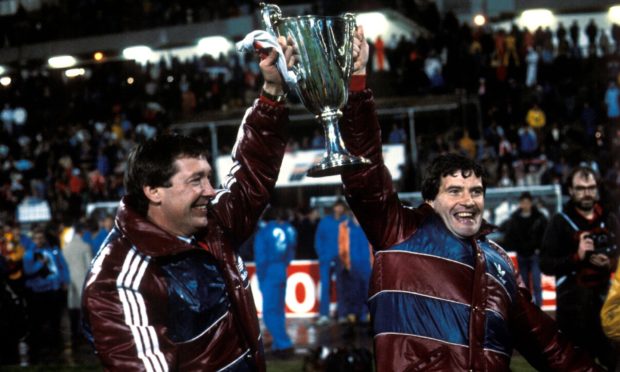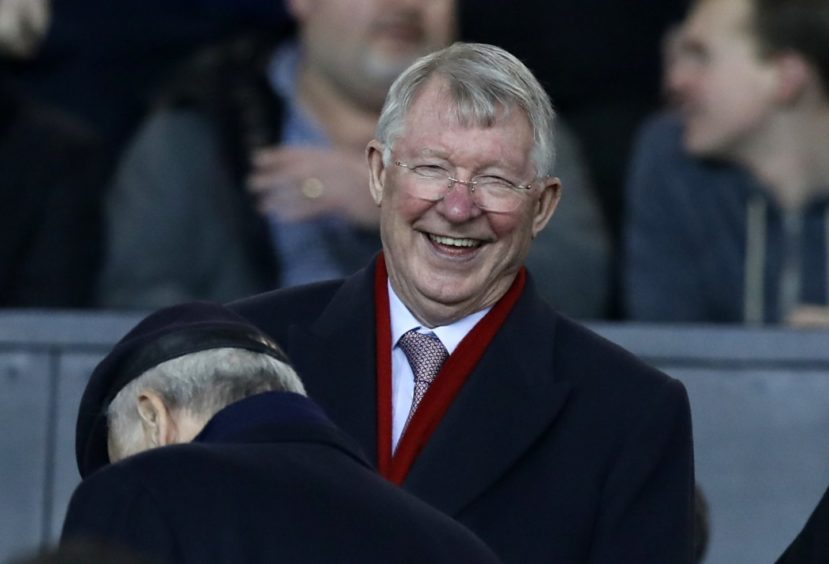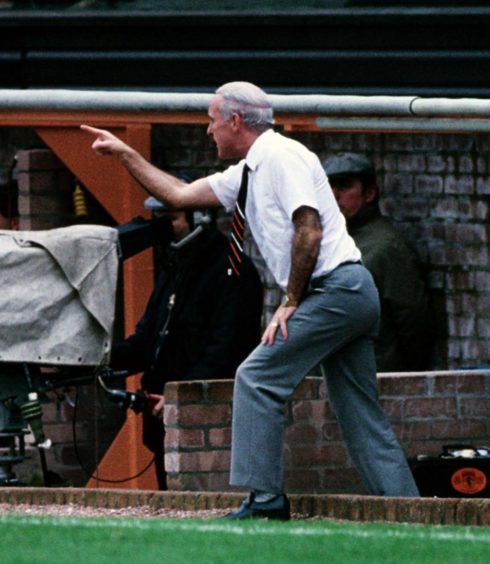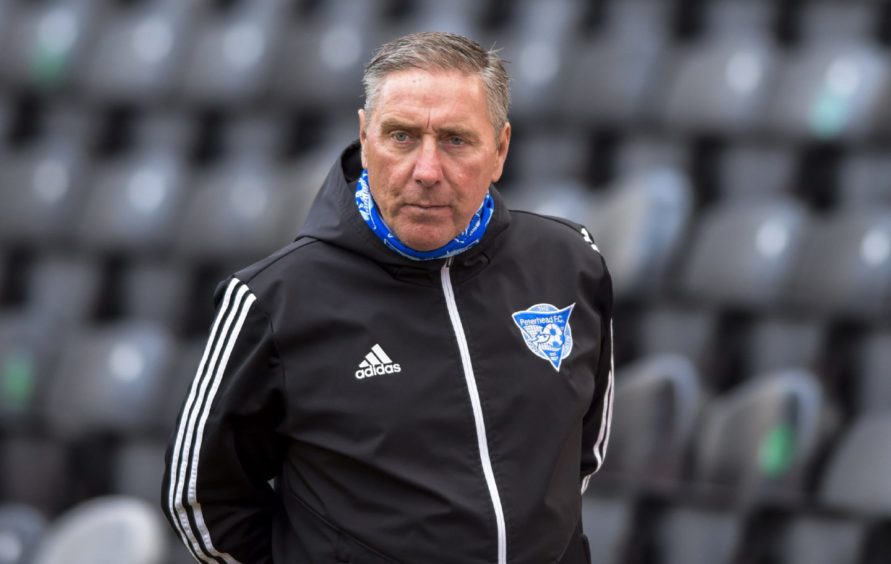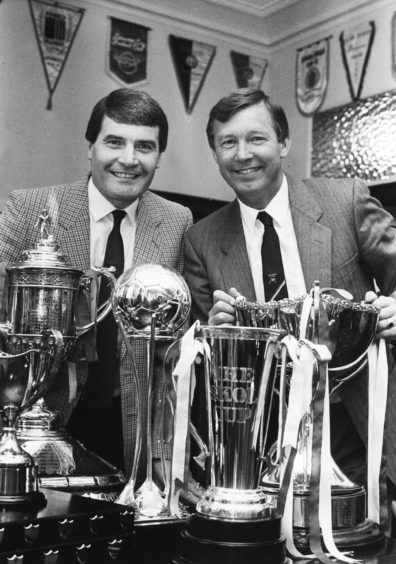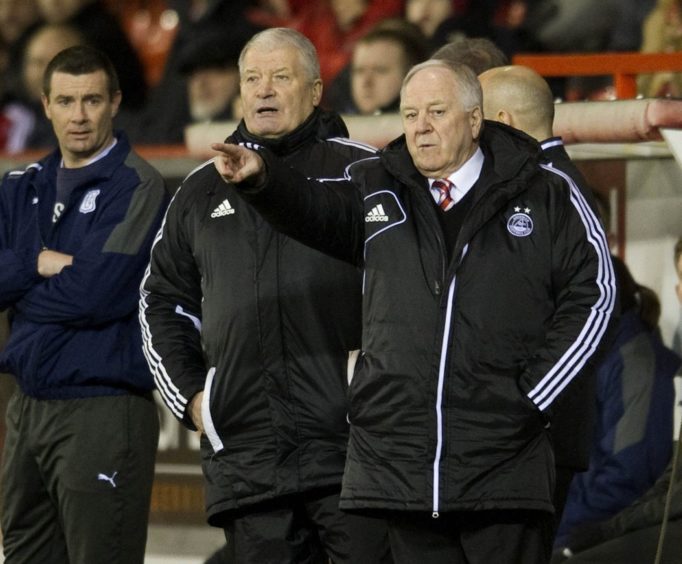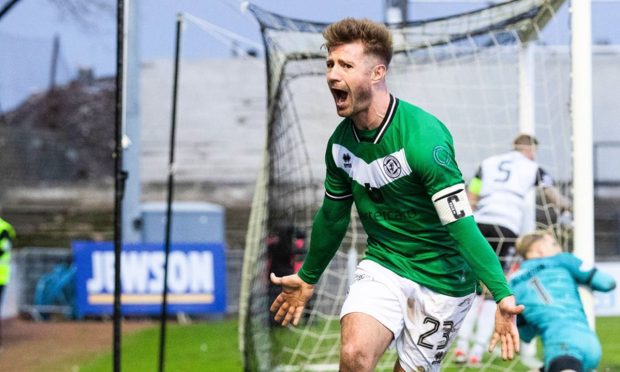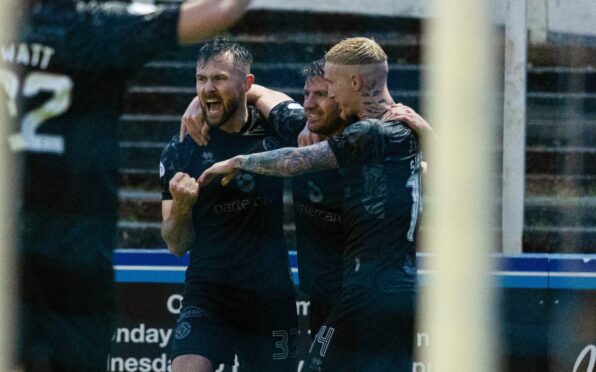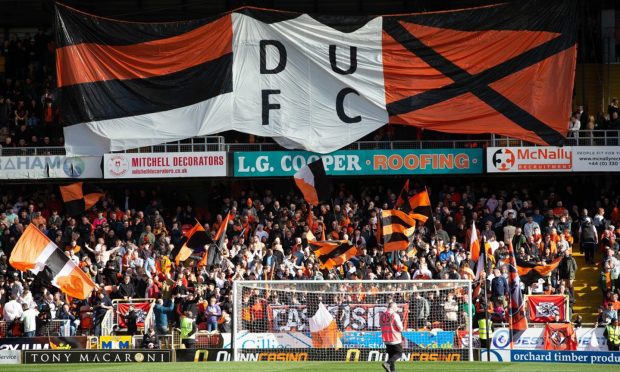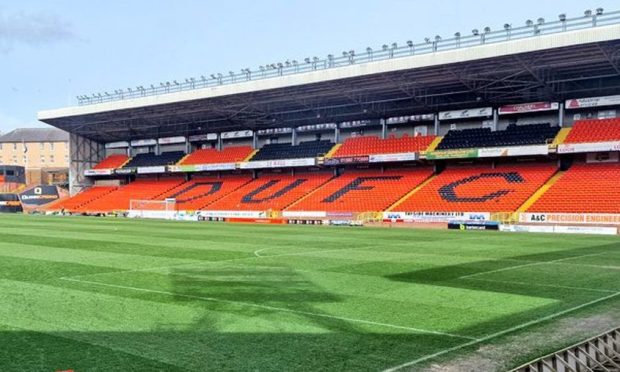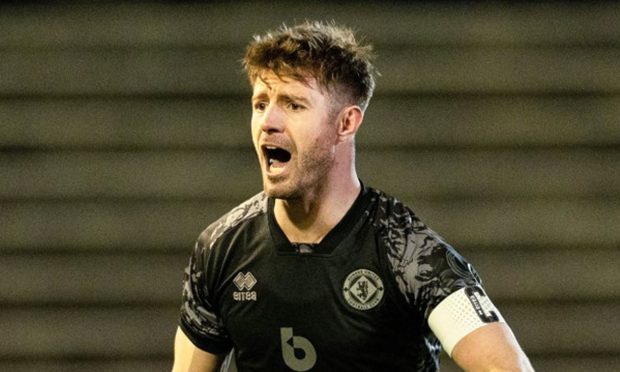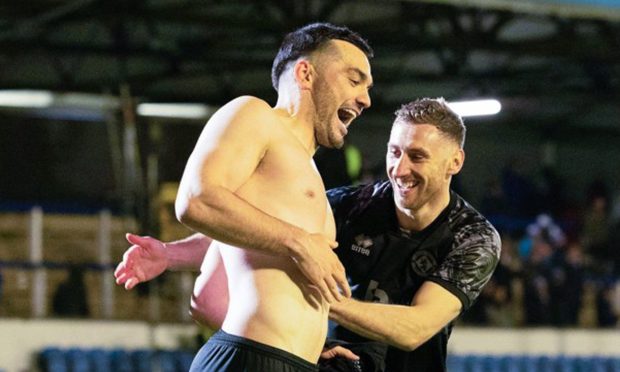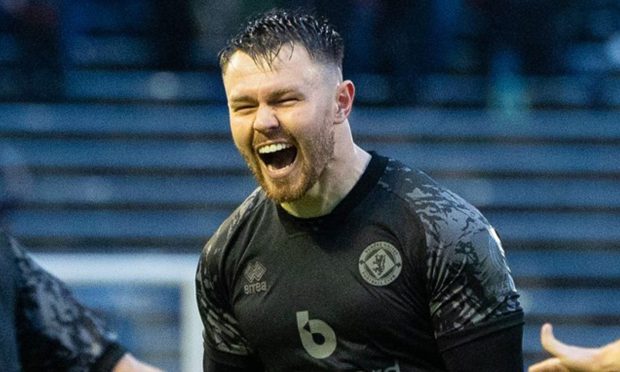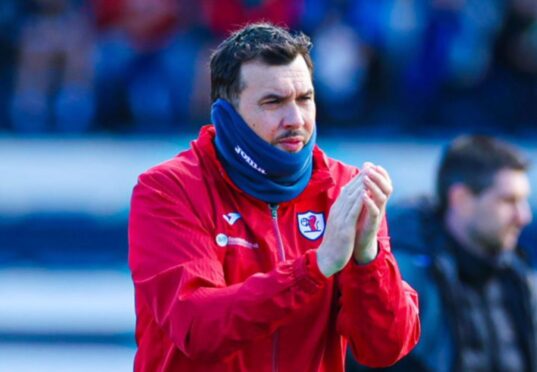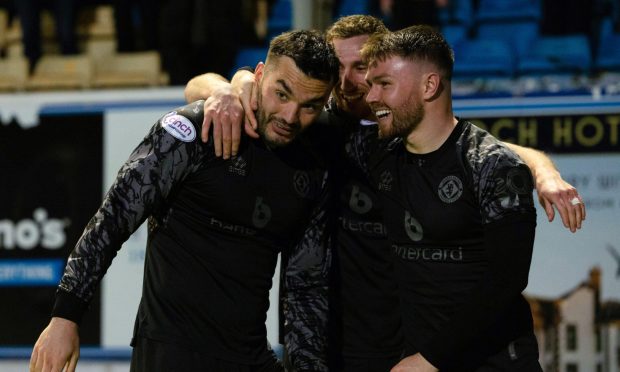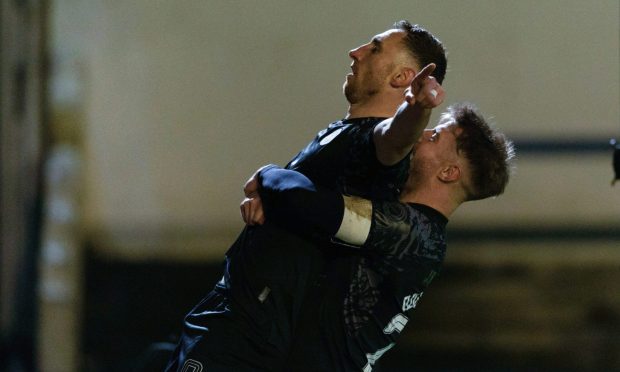Jim McInally worked with legendary managers in Brian Clough and Jim McLean – but he’s always been left thinking “what if?” when it comes to Sir Alex Ferguson.
The most successful gaffer the British game has produced led Aberdeen during the most famous period in the club’s history.
In eight years from 1978 the Dons won three Premier Division titles, four Scottish Cups, a League Cup, the European Cup Winners’ Cup and European Super Cup.
This success earned Ferguson a move to Manchester United in November 1986.
He eventually retired at Old Trafford in May 2013, having guided the Red Devils to 13 English Premier League titles, five FA Cups, four League Cups, two Champions Leagues, the Cup Winners’ Cup, Super Cup and Club World Cup.
However, the 78-year-old’s early years in Manchester were turbulent with the 1989-90 season particularly tough going.
As pressure mounted it was believed, if United lost to Nottingham Forest in the third round of the FA Cup in January, Ferguson would be sacked.
At the time, Peterhead manager McInally was with Dundee United, under the charge of McLean.
The Tannadice squad at the time anticipated, if Ferguson’s time at Old Trafford did end, McLean – who was by that time United manager, managing director and chairman – would move to bring him to Tayside as his successor in the Arabs hotseat and step up to the boardroom, something he subsequently did in 1993 with the appointment of Ivan Golac.
However, Manchester United beat Forest 1-0 thanks to Mark Robins’ goal and went on to win the FA Cup that season – and the rest, as the saying goes, is history.
McInally, currently Scotland’s longest-serving manager, recalled: “There were rumours about Fergie getting sacked just about every week at one stage.
“I remember at Dundee United we were hoping he would get sacked because we thought we would get him as manager.
“He was pally with Jim McLean and we thought Fergie was probably the only person Jim would have been happy to come and replace him if he decided to move upstairs.
“Obviously that never happened, Fergie turned it round and the rest is history for him really.
“It’s funny in football how a couple of results can change things, because there was a time when we believed he could have been the next manager at Tannadice.
“I suppose the only person who knows how close Fergie was to leaving is Martin Edwards, who was Man United chairman at the time, and he’s never really disclosed that.”
McInally had come across Ferguson as a young player with Celtic when he helped out as a runner with SFA summer coaching courses at Largs.
He was somebody the Blue Toon boss admired and would have liked to work with, although he did have another brief encounter McInally remembers to this day.
After Dundee United’s 2-1 defeat to Celtic in the 1988 Scottish Cup final, McInally bumped into Ferguson in the car park at Hampden.
And the Manchester United manager – working for television on the day – was quick to offer some consoling words.
McInally, who also played under Clough at Nottingham Forest, added: “I came across Fergie as a really young player when I went down to Largs as a runner to help at the coaching courses.
“Even then he was hard on the young players and I used to be friendly with a few of the young Aberdeen players because they came from Castlemilk like myself.
“I was pally with guys like Ian Porteous and he could be hard on the young players, but then we’d be down there and he’d give the boys money for sweeties and things. He was hard, Fergie, but he was fair.
“After that, the next time I came across him was after the 1988 Scottish Cup final and he was doing TV commentary that day.
“He stopped me in the car park after the game to console me. He said: ‘never mind you’ll get there and you’ll win it.’
“I suppose he was right because I did win it one day (1994), although it took long enough to come.
“When somebody like that comes and speaks to you as you Fergie did at Hampden it sticks with you.
“I always thought the world of him because of what he achieved, but it’s always nice when somebody like that speaks to you.”
‘Archie Knox could’ve been one of the great managers like Jim McLean or Brian Clough’
He’s renowned as one of the best coaches and assistant managers football has seen, but Jim McInally reckons Archie Knox could’ve been an outstanding manager in his own right.
In a coaching career spanning nearly 40 years Knox managed Forfar, Dundee and Scotland Under-21s, as well as working as a No2 or coach with the senior national team, Aberdeen (on three occasions), Manchester United, Rangers, Everton, Millwall, Coventry, Livingston, Bolton, Blackburn and Motherwell.
McInally played under Knox during the second half of the 1983-84 season at Dundee.
The current Peterhead manager also played under Brian Clough and Jim McLean during his career, but says Knox was up there with both of them as a gaffer.
Scotland’s longest-serving manager said: “The short spell I had at Dundee, I thought Archie was an outstanding manager, but I’m not sure if after trying it he decided he didn’t want to do it himself.
“He left Fergie at Aberdeen to try being a manager himself and maybe he didn’t enjoy it as much, but I loved my spell playing under him.
“I think Archie could have been one of the great managers. He was good at the job.
“After I left Dundee his team went from strength to strength and he brought in players like Robert Connor and John Brown.
“I suppose only Archie would know why he decided to step away from it at Dundee.
“Maybe the lure of going back to Aberdeen with Fergie and then the chance to go to Manchester United later was too good to turn down.”
Knox had two-and-a-half years as Dundee boss before returning to Aberdeen in the summer of 1986 for a second spell working alongside Sir Alex Ferguson.
McInally says both his man management and tactical knowledge were up there with Ferguson’s.
The Blue Toon boss added: “Archie was tactically brilliant and his training was really good as well.
“On top of that he had a wicked sense of humour, because he could have a real go at you, but then it could be quickly forgotten and he could have a laugh and a joke.
“I suppose at the time Fergie was probably a lot like Jim McLean in that they were a bit more ruthless and brutal, but Archie wasn’t quite like that.”
